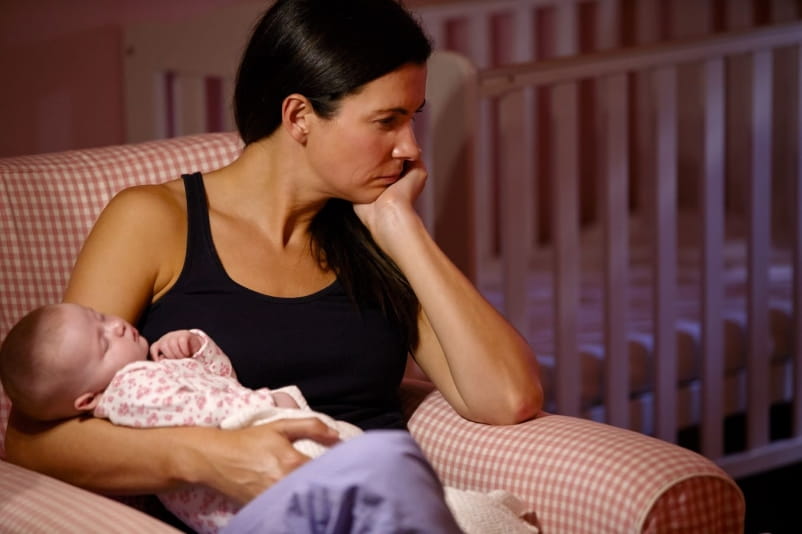Mental Health
According to the Centers for Disease Control and Prevention, “Mental health includes our emotional, psychological and social well-being. It affects how we think, feel and act. It also helps determine how we handle stress, relate to others and make healthy choices. Mental health is important at every stage of life, from childhood and adolescence through adulthood.”
Children with good mental health tend to:
- Perform better in school
- Foster friendships with other students
- Have a higher graduation rate
The CDC declared mental health a global public health issue in 2020.
Note: Sometimes people refer to “behavioral health” which includes both mental health and substance use/addiction. In this section we focus on mental health conditions.
Mental Health Conditions
As mentioned, multiple factors together or alone, can cause mental health conditions. These include:
- Anxiety, including panic disorder or generalized anxiety disorder
- Bipolar disorder
- Depression
- Postpartum depression
- Post-traumatic stress disorder
- Schizophrenia
Risk Factors for Mental Health Conditions
Anyone can experience a mental health condition or crisis. But some factors can exacerbate mental illness or make it harder to seek help, including:
- Substance use disorder, including alcohol use
- Hopelessness
- History of trauma or abuse
- Job or financial loss
- Loss of a relationship
- Sense of isolation
- Lack of mental health care
- Family history of mental illness
- Not recognizing symptoms of mental illness
Connection between Mental and Physical Health
Your mental health is connected to your physical health. Mental illness can make it hard to complete day-to-day tasks like taking your medication or going to the doctor.
Mental illness can also impact your social connections, shrinking your support system. This can lead to stress, which continues the cycle of mental illness and contributes to health conditions like heart disease.
Mental illness can also affect your ability to recognize physical health conditions or can look like physical health conditions with symptoms like pain, headaches and fatigue.
In addition, certain physical health conditions, especially chronic ones, may go hand-in-hand with mental illnesses. These include:
Preventing and Treating Mental Illness
Mental health crises may be prevented or made less likely to happen with certain interventions. Supporting people who are at a higher risk for developing mental illness can make a difference in their health and quality of life.
For people with mental illness, treatment and management options include:
- Medication
- Talk therapy like Cognitive Behavioral Therapy
- Lifestyle adjustments, including
- Exercising regularly
- Getting enough sleep
- Eating well
- Quitting smoking and using substances
- Taking medication as prescribed
- Limiting alcohol intake
- Getting outside
- Seeing your primary care provider for regular checkups
- Peer support
- Group therapy
- Inpatient treatment, sometimes needed in times of crisis or when suicidal thoughts occur
Mental Health in San Antonio
About 1 in 5 people – nearly half a million people in San Antonio – have some degree of mental illness.
A 2022 study found that nearly half (49%) of young adults aged 12-19 felt “helpless, hopeless, numb, or like nothing matters.”
In this study, LGBTQ+ youth more often reported feeling unable to complete daily tasks, misusing substances, hurting themselves and having thoughts of suicide than their heterosexual peers.
Suicide Prevention
Suicide is preventable. If you’re having thoughts of self-harm or suicide, please call or text the National Suicide Prevention Lifeline at 9-8-8.
Knowing the warning signs that someone may be considering suicide is key to intervening and helping them. These include:
- Talking about wanting to die, or having thoughts of death and suicide
- Talking about feeling trapped, hopeless or like they don’t know how to live
- Talking about being a burden to others
- Having extreme mood swings
- Making a plan for death, saying goodbye, writing a will, giving away belongings
- Withdrawing, isolating or sleeping excessively
- Having aggressive, erratic or unpredictable behavior
University Health Resources
CoSPLAY Suicide Prevention
CoSPLAY (Comprehensive Suicide Prevention Blueprint for Adults and Youth) focuses on providing suicide prevention services for Bexar County residents between the ages of 10-24 who may also identify as LGBTQ+.
Please contact Jose Gonzalez at Jose.Gonzalez3@uhtx.com or call 210-644-1556 to learn more about our suicide care pathway.
Zero Suicide Program
University Health Zero Suicide Program aims to reduce suicide attempts and deaths among adults by using a comprehensive, multi-setting suicide prevention and intervention approach. Ask your primary care provider for more information.
Community Resources
Find a complete list of behavioral health resources for adults and for children, adolescents and teens on our website.
Clarity Child Guidance Center
Clarity Child Guidance Center is a nonprofit mental health treatment center for children ages 3 to 17 in South Texas. When a child is in crisis, they work with families to ensure they receive the necessary treatment, regardless of their ability to pay.
Empower House
The Mental Health Program offers compassionate, free counseling services for youth aged 12 to 19 and their parents or caregivers, available both virtually and in person. Services include individual, group, and family counseling, addressing a wide range of mental health needs. Beyond counseling, the program also provides mental health workshops and outreach events, aimed at connecting community members with effective mental health solutions and valuable resources.
Family Service - Early Childhood Well Being Program
Family Service Early Childhood Well-Being works in partnership with the adults in children’s lives, including their families, teachers, and caregivers, to provide behavioral health services for young children. Providing appropriate tools and resources to educators and parents/caregivers helps ensure children are achieving key developmental milestones and developing healthy relationships.




